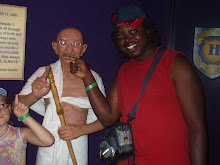Before I begin this note I would like to note that President Kibaki is unworthy leader. Politics, is about who gets what when and how. He is defiantly unable to provide guidance on any of these matters. There seams to be people who are more powerful than he is Mr Raila seams to know this but is more interested in stability by not undermining the president’s power. This note is a highlight on basic politics and is thus more on civic education it will be followed up by what we direction needs to take regarding elections and government structure. It will future three key issues that are paramount to any democratic government
1. Separation of powers – the extent to which the powers of government are separated functionally between branches of government;
2. Removal from office – how each system defines the conditions for removing the executive and dissolving the government; politicians should realize they are public servants employed to represent citizens not the other way around.
3. The structure of legislative parties and leadership – the influence that the governing system has on the structures developed by parties in the legislature; degree of hierarchical control, internal discipline, and latitude for openness to representing local differences. Party discipline is needed to keep control of the executive, a need that varies among the three systems; this will bring us to party funding as well as better understanding of political ideologies.
A government system refers to how that state’s executive, legislative, and judicial organs are organized. All nations need some sort of government to avoid anarchy. Countries must have citizens, and geographical boundaries, citizens are key to a nation that’s why Attica is not a country nor are there any Antaticans. The concept of democracy hence allows direct representation on condition that citizens can manage their own affairs, leaving the state to provide security for citizens and property. A key issue to understanding why I don’t believe Chalemondy is not guilty, since the Kenyan government has failed to provide any of this. Democracy encomprises systems such as Anarchy. In this case anarchy is how the world runs there is no world government on a smaller scale how the free market should run.
The duties of the head of state not only transcend national issues they go as far as international representation. Hence the head of state is the countries representative in a country. Just like an MP represents a constitution.
Now that the concept is somewhat defined, lets zero in on Kenya for the past few years Kenya has had a presidential system, this coupled with a central run government, all state power is awarded to the president. Who might choose to abuse power since he has veto powers on everything. The concept of separation of powers is nothing more than a utopia concept in a presidential system and centralist government. Fast forward to the creation of Prime minister, which Raila had advocated for before the elections of 2007, separation of powers becomes more visible. However the problem is the presidential system has been there for too long its hard to break an old dogs habits,
Part 2 of this blog will discuss where the country needs to head
Tuesday, May 19, 2009
Subscribe to:
Post Comments (Atom)

No comments:
Post a Comment